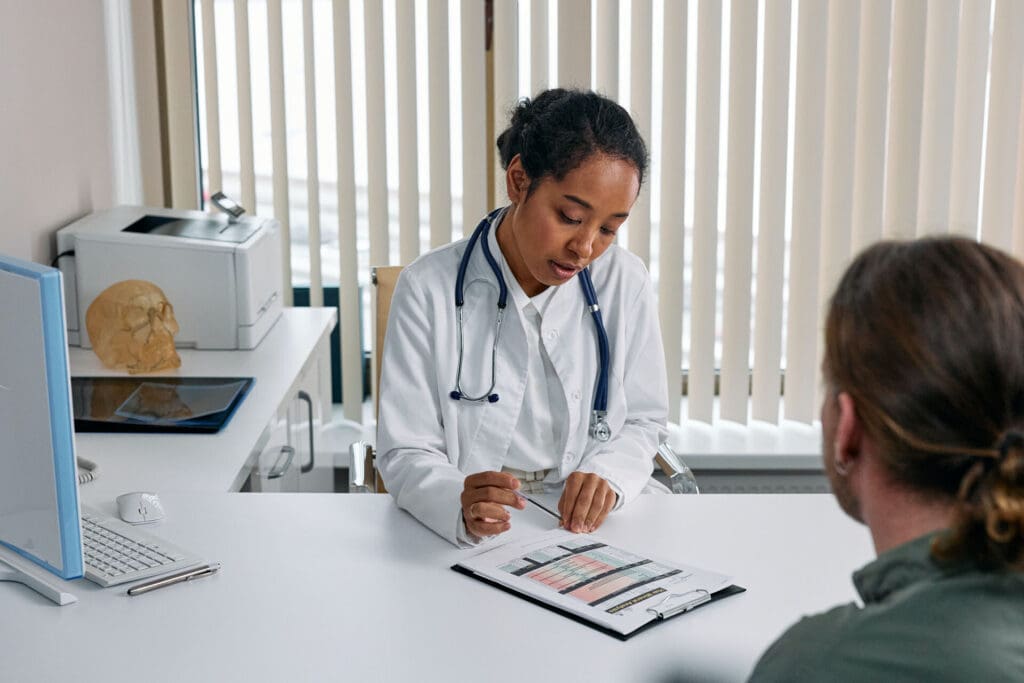What is a Drug and Alcohol Assessment?
So, what is a drug and alcohol assessment exactly? A court-ordered substance abuse evaluation is an in-depth look into the scale of one’s substance use to make a diagnosis and recommendations for treatment. These evaluations look into the type of substance, the dosage, and the frequency with which it is being used to paint a picture of their substance use history. Drug and alcohol assessments give a better idea of a substance abuser’s circumstances and the depth of substance use. It can also guide those responsible to give the best solution to the problem. All the information gathered in an evaluation can be used to help someone overcome substance abuse. When trying to know about someone’s struggle, an evaluation is the best way to get exact, accurate information. Some court-ordered substance abuse evaluations are done for medical purposes. Others are for court as well as other less common reasons. Still, before addressing the “why”, it is important to understand the “how.” At The Freedom Center in Gaithersburg, Maryland, we have all the resources for substance abuse recovery you could need to make that change in your life. Besides medical and psychiatric support, we provide other services to make your transition into sobriety easier. We also can help you with case management and legal aid should you want it. That way, you can get the treatment you need while also dealing with any legal problems, all at once.How Does It Work?
A substance abuse evaluation consists of the following components: Screening: The initial stage where the person doing the procedure investigates if there is a problem. Since the goal is to look for a problem, the answer is usually a ‘yes’ or a ‘no’. Assessment: Once the first part is done, comes the more analytical stage. This second step is designed to determine what the problem is. This is the phase where drug tests might be required. Some alcohol and drug evaluations might also include the following: Follow-up: A follow-up is only needed in case there is a need for treatment or counseling. This would depend on the results of the screening and the assessment. The objective is to check on the subject and see how they are doing. Referral: This final phase would be recommending a program, treatment, or counselor to the person. It would also depend on the results of the previous steps.Who Conducts a Drug and Alcohol Assessment?
Usually, these procedures are conducted by trained professionals. However, the screening phase of the process can be completed online as well. People responsible for these are usually licensed professionals that specialize in understanding human behavior. Social workers, psychiatrists, therapists, nurses, doctors, and psychologists are a few examples. It is also not uncommon for there to be a physical examination or a drug test in the process. Although they are focused on questionnaires, these are extra steps to better understand someone’s condition. However, each phase has its requirements and procedures to be followed.Screening
 The purpose of the screening process is to find whether or not there is a condition to be treated. It also helps in finding if the person is at risk even if they haven’t developed a disorder yet. Screening is in no way meant to diagnose a person, but it is supposed to find out if there’s a problem to begin with.
There areseveralf types of questionnaires used in the process. Some of the most commonly used ones are:
State-Made Inventory: There are cases where a questionnaire is created by the state government. They might be the sole tool used or might be paired with others for the evaluation process.
Alcohol Use Inventory (AUI): This questionnaire is focused on alcohol abuse specifically. Although its structure is a great way to understand abuse-related behavior, it requires honesty to work. It takes into consideration the lifestyle aspects of the user, giving more context to their choices and habits.
CAGE Questionnaire: This is one of the shorter options available, with a mere four questions on substance abuse. Although brief, they are designed to allow answers in detail. Like the previously mentioned test, its accuracy depends on honesty.
Substance Abuse Subtle Screening Inventory (SASSI): This is a test with a 93% accuracy rate that analyzes more than substance abuse risk. While giving the probability of there being a disorder, it also shows how willing the person is to acknowledge it and to change. It can help the assessor tell if substance use is limited to social or recreational use, and how severe it is.
Should the results be positive and the person might have signs of a use disorder, the next step is getting an assessment.
The purpose of the screening process is to find whether or not there is a condition to be treated. It also helps in finding if the person is at risk even if they haven’t developed a disorder yet. Screening is in no way meant to diagnose a person, but it is supposed to find out if there’s a problem to begin with.
There areseveralf types of questionnaires used in the process. Some of the most commonly used ones are:
State-Made Inventory: There are cases where a questionnaire is created by the state government. They might be the sole tool used or might be paired with others for the evaluation process.
Alcohol Use Inventory (AUI): This questionnaire is focused on alcohol abuse specifically. Although its structure is a great way to understand abuse-related behavior, it requires honesty to work. It takes into consideration the lifestyle aspects of the user, giving more context to their choices and habits.
CAGE Questionnaire: This is one of the shorter options available, with a mere four questions on substance abuse. Although brief, they are designed to allow answers in detail. Like the previously mentioned test, its accuracy depends on honesty.
Substance Abuse Subtle Screening Inventory (SASSI): This is a test with a 93% accuracy rate that analyzes more than substance abuse risk. While giving the probability of there being a disorder, it also shows how willing the person is to acknowledge it and to change. It can help the assessor tell if substance use is limited to social or recreational use, and how severe it is.
Should the results be positive and the person might have signs of a use disorder, the next step is getting an assessment.
Drug and Alcohol Assessment
The research and analysis elements of this phase are way more in-depth than the screening phase. Besides looking for proof that there is a condition that should be treated, it is also meant to pinpoint symptoms. With this, a practitioner can say what is the disorder and what needs to be treated. The assessment can also help determine whether or not there is only one issue at hand. When it comes to substance use disorders, it is common to have co-occurring disorders. This would mean suffering from both an addiction and a psychiatric illness as well. It is the case in 60% of cases where a person struggles with substance abuse. The assessment is meant to be as close to a diagnosis as possible. For that, there are multiple tools available that can help the assessor address the situation. Two of the most commonly used ones are: Diagnostic Interview Schedule IV: The basis of the questionnaire structure is the Diagnostic and Statistical Manual of Mental Disorders. It points out if the person meets any diagnostic criteria. It also helps the assessor understand the “course, onset, and recency of positive symptoms,” according to its description. Addiction Severity Index: It addresses and analyzes seven problem areas of substance abuse. These areas are drug use, alcohol use, family/social status, employment and support, medical status, psychiatric status, and legal status. This doesn’t just help look into substance abuse itself, but the conditions leading to it, factors that influence it, and so forth.Court-Ordered Substance Abuse Evaluation
A drug and alcohol assessment or court-ordered substance abuse evaluation is something usually ordered by a judge. It is most often requested when a case involves substance abuse and drug-related crime. Also, the substance abuse evaluation process may be part of the sentencing procedure according to the state where the crime was committed. A drug and alcohol evaluation can be done through a certified state agency. The cost varies in each state, but it is set somewhere between $100 and $150. A substance abuse evaluation for court can be required in case of drunk driving, for instance. Most cases where a drug and alcohol assessment for court might be needed are: driving under the influence (DUIs); disorderly conduct while intoxicated; possession of drugs or alcohol (can apply to minors); public intoxication; drug trafficking or distribution; manufacturing and/or distribution of controlled substances; and/or use of fake IDs for purchase or consumption. For a court-ordered substance abuse evaluation or drug and alcohol assessments, some of the documents required are:- A report of your driving history (provided by the DMV or the DDS)
- A copy of your assessment, in case of attending a DUI Alcohol or Drug Use Risk Reduction Program (RRP)
- Copies of arrests, arrest reports, or criminal history
- 12-step/AA/NA meetings or group therapy sessions
- Substance abuse education classes
- Counseling sessions
- Rehabilitation program (can be either inpatient or outpatient)
- Random drug and/or alcohol urine testing
- Participating in a DUI Alcohol or Drug Use Risk Reduction Program (RRP)
Get The Help You Need at The Freedom Center
 If you or someone you love has had legal issues due to substance abuse, a court-ordered substance abuse evaluation may be necessary. Turning one’s life around from that can be hard. After all, it’s difficult to break cycles and patterns, even if they’re harmful. But recovery is possible. Getting in trouble with the law and needing a court-ordered evaluation is a red flag that something needs to change, and there’s no better time than now.
If you or someone you love has had legal issues due to substance abuse, a court-ordered substance abuse evaluation may be necessary. Turning one’s life around from that can be hard. After all, it’s difficult to break cycles and patterns, even if they’re harmful. But recovery is possible. Getting in trouble with the law and needing a court-ordered evaluation is a red flag that something needs to change, and there’s no better time than now.











































